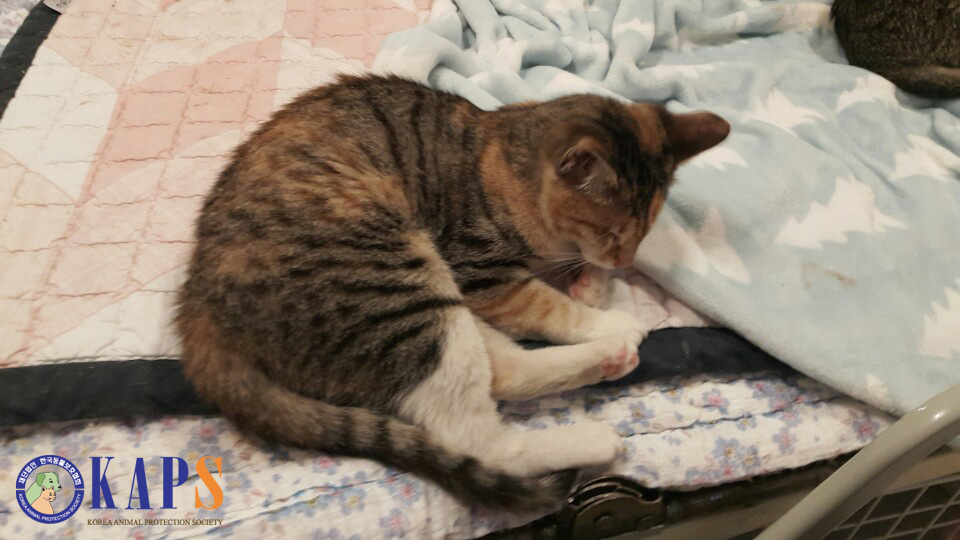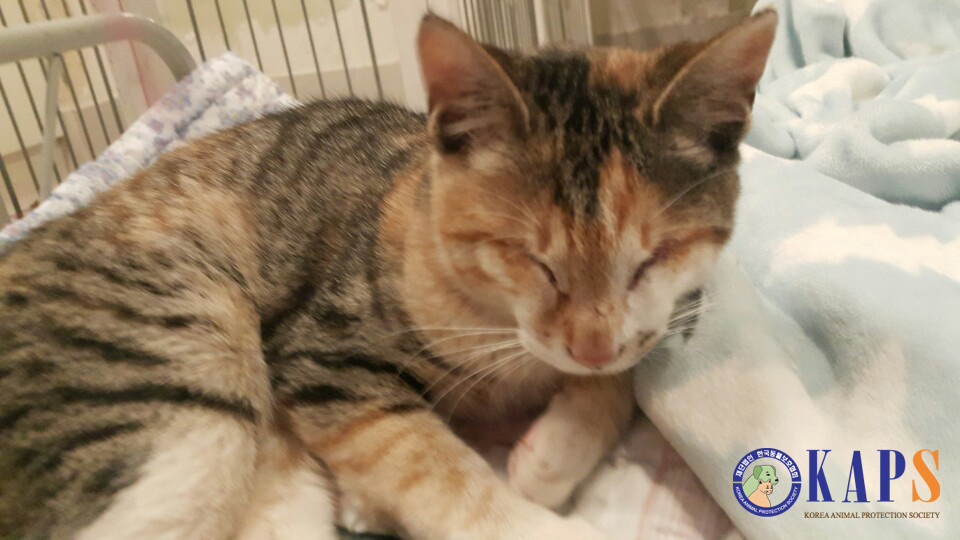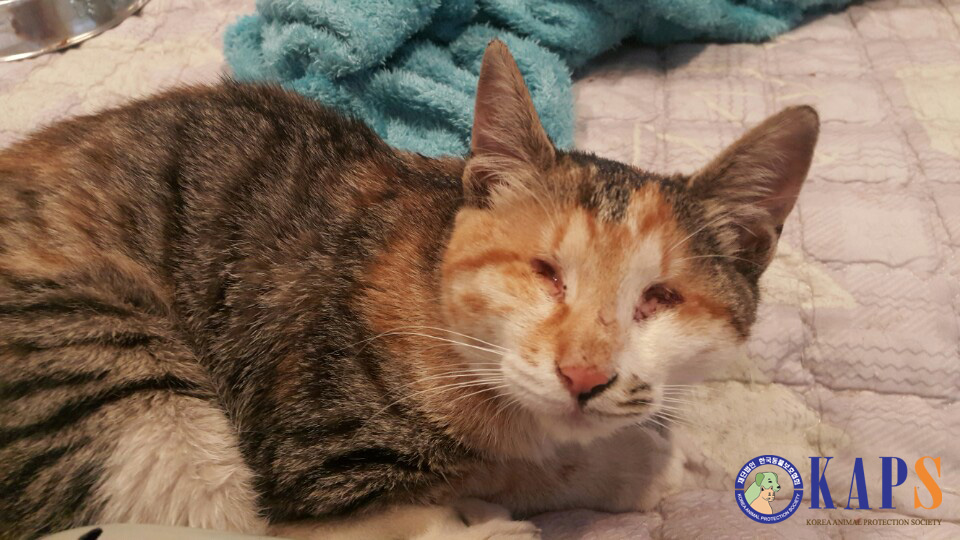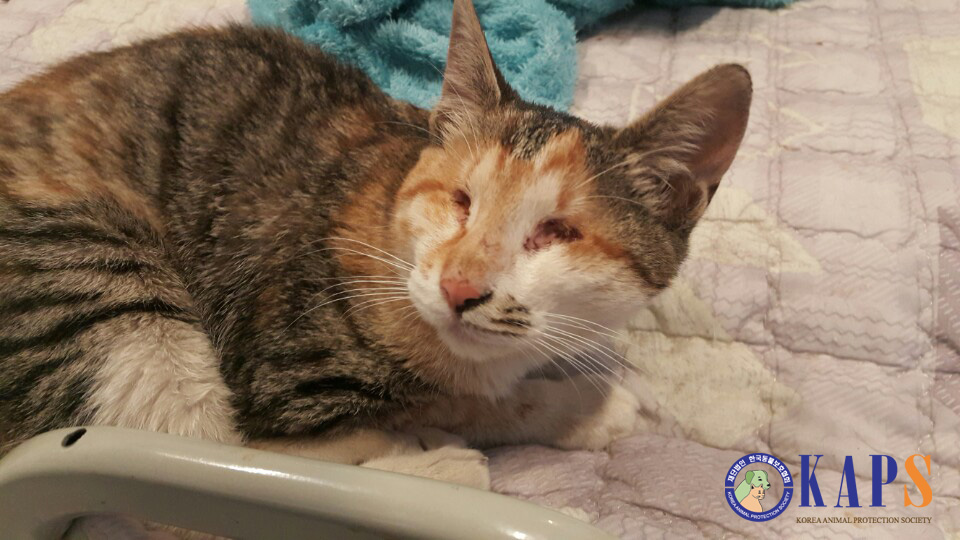Meet one of our shelter cats, Henam.
Before reaching 1
year of age, Henam, unlike other cats, had totally lost her eyesight.
This is her
story.
2018 May 2 we
received a call from factory staff Henam Kim in the industrial district of
Dalsong-Gun, Daegu.
The previous
summer a mother cat living in the industrial area had birthed 3 kittens but
soon after was hit by traffic and killed. Local factory staff gathered the 3
kittens and took them into their care. Amongst the 3 kittens, one developed an
eye infection and totally lost her eyesight. From the time of - the abrupt - weaning,
this kitten had been totally blind.
Henam Kim said
the healthiest of the 3 kittens had been quickly adopted and the remaining 2
kittens continued to reside in the local industrial area. She told us the
totally blind kitten constantly followed her sibling and when her sibling ate,
she followed and ate too.
Ms Kim told us the
kittens, without hitch, regularly made their way to the factory for food and she
feed them whenever she saw them, with canned food.
However, Ms Kim
was concerned about the kitten without sight. She could easily be hit crossing
the road or harm herself climbing an obstacle. She could not live safely as a
stray cat.
Ms Kim looked for
homes to adopt the blind kitten out to, though no one seemed confident enough
or willing to take on a blind kitten. There was also the option of sending the
kitten to a government contracted shelter, but she was unwilling to send the
kitten to an animal shelter already overwhelmed with animals and required to
euthanise overflow.
By spring Ms Kim learnt
about our shelter, a sanctuary to animals, and contacted us, asking us to
accept the blind kitten.
At spring time,
there are always more kittens rescued than our shelter can manage, and we are
very often at full capacity. But we could not refuse the call asking us to
accept a kitten under 1 year of age, blind and living in a location that was a
threat to her safety.
This is how Henam
made her way to our shelter 2018 May.
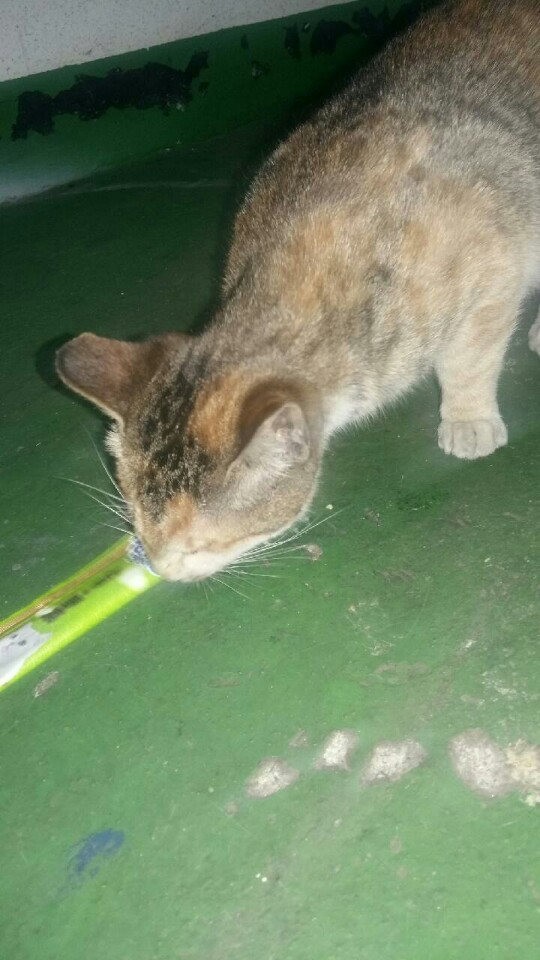
▲Photo taken of Henam, eating food, at the time of her rescue.
Henam is named
after her first rescuer Henam Kim.
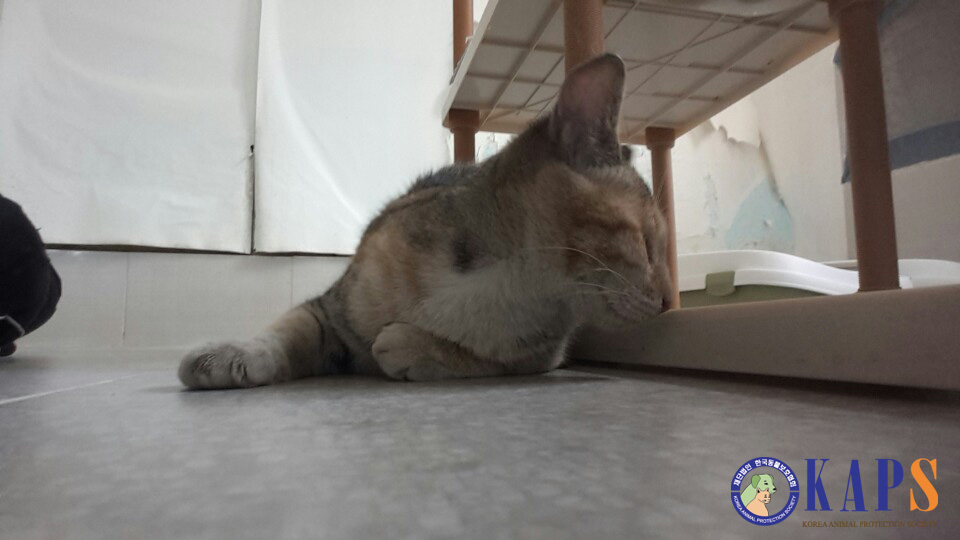
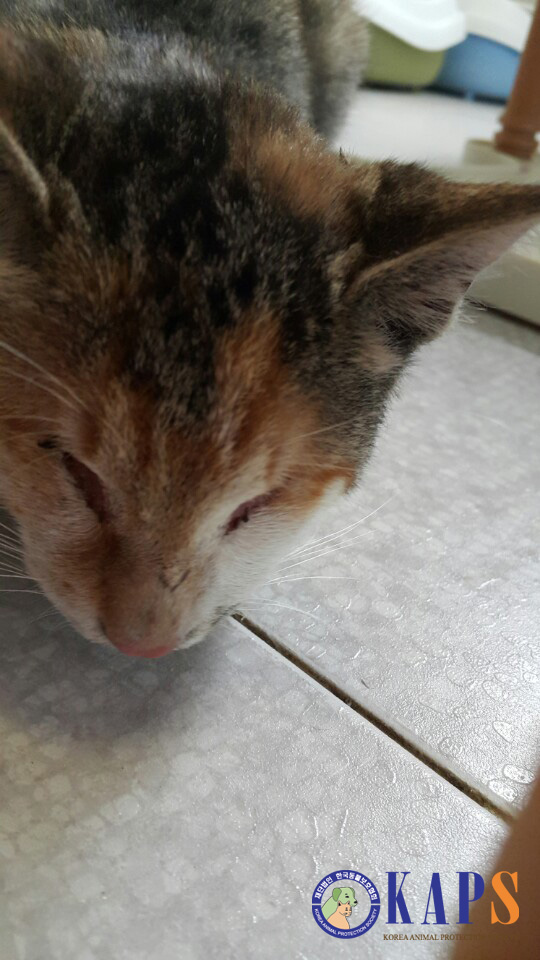
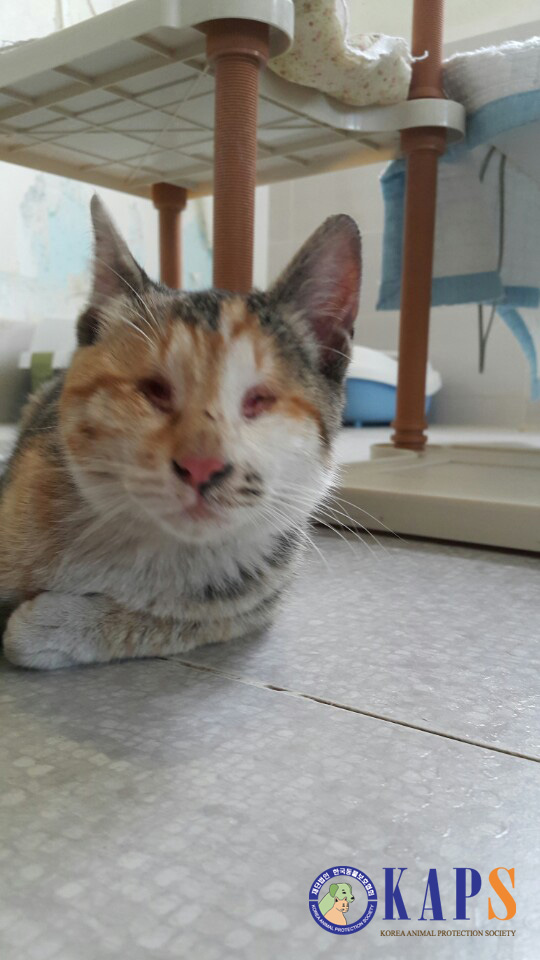
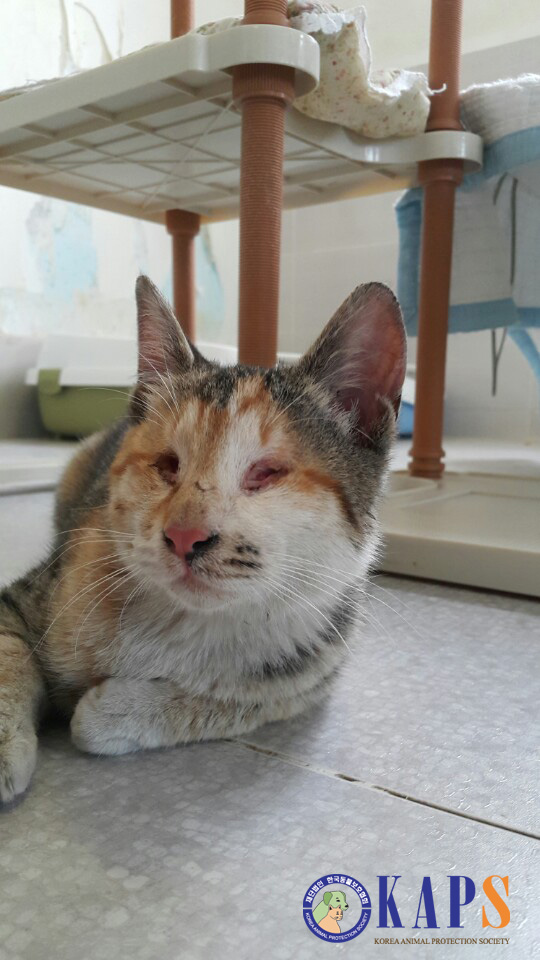
▲Henam’s arrival
at our shelter.
Henam arrived at
our shelter, and unlike most cats in a foreign place, could not hide herself.
Without sight, Henam
could only sit still and quietly avoid attention. Moving to a foreign place, especially
for a for a blind cat like Henam, can only be completely terrifying.
Henam could not
eat and did not move for some time. As always, at KAPS we cared for her and did
our best to let her know she was in a safe place.
And as it turns
out… Henam absolutely loves people!
KAPS staff also
had some concerns Henam possessed a weak respiratory system and could not
adjust well to life at an animal shelter but, once again, Henam proved herself to
be an excellent eater with a particular love of raw meat. Henam has become a
very healthy and well-adjusted kitten right in front of our eyes.
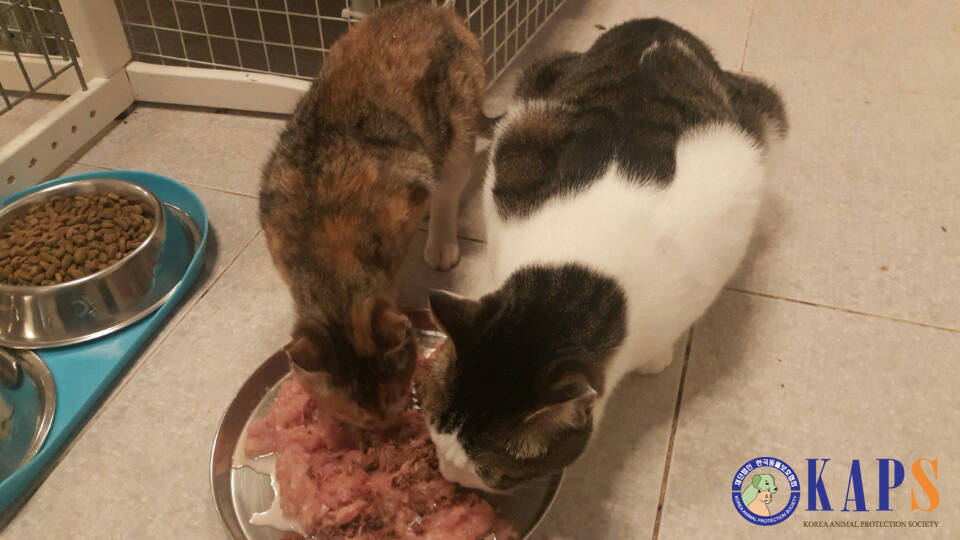
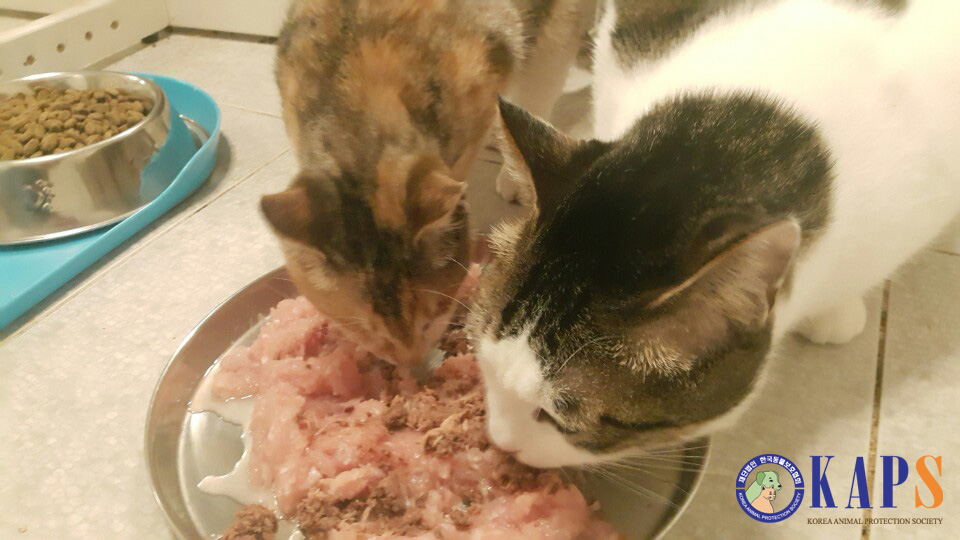
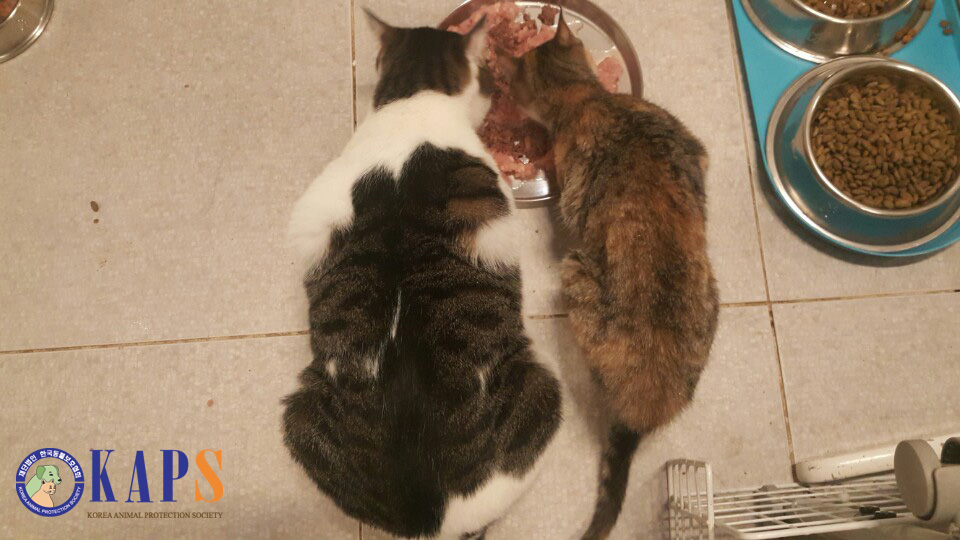
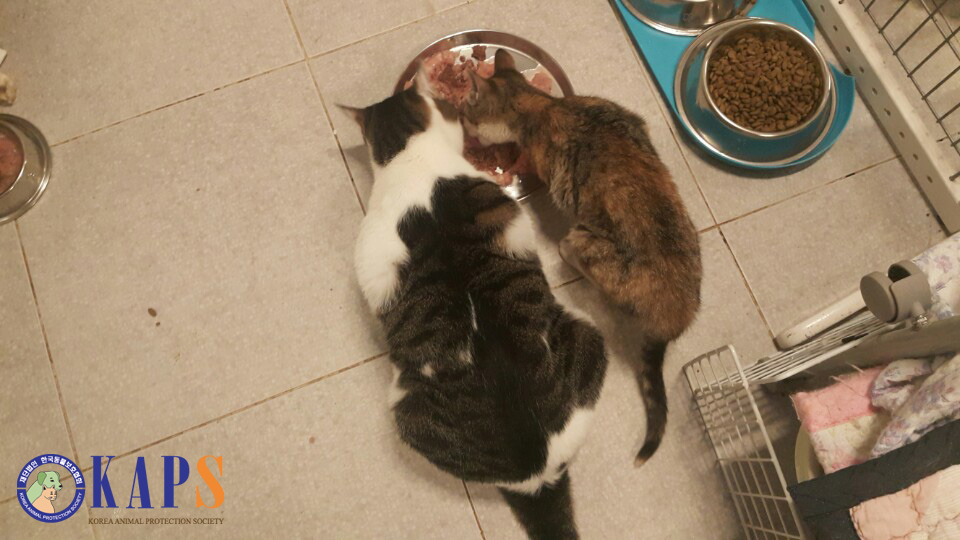
▲Doongshik and
Henam together munching on some food.
One incredible
discovery is, after adjusting to her new surroundings, there was no place Henam
could not go.
Quite naturally,
Henam spent the first month cautiously and kept to a limited area. Conversely,
as much as she is blind, today she navigates her surroundings like a seeing
cat. She even has moments of creating more trouble than a seeing cat!
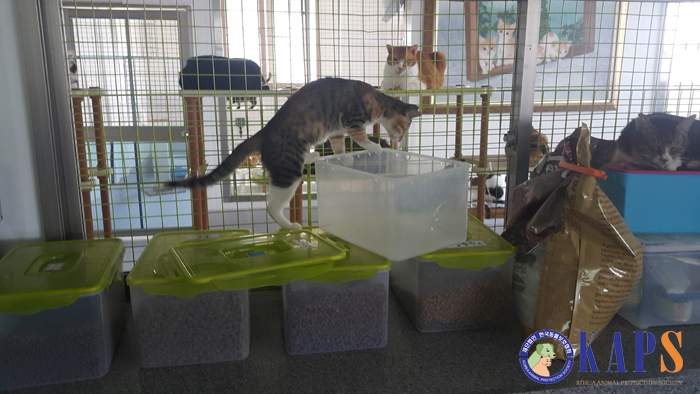
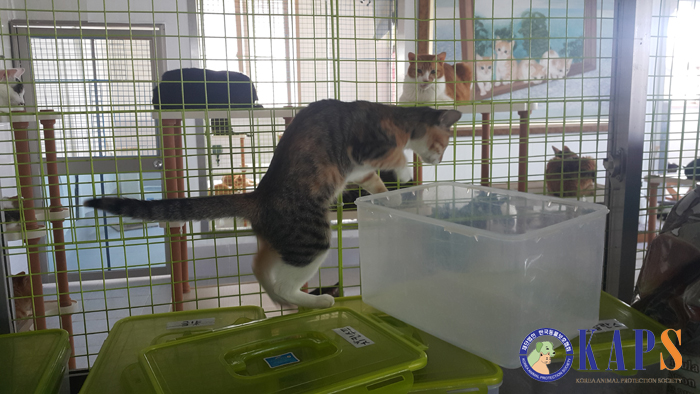
▲Henam, after making
her way up onto a sink to play tricks on other cats.
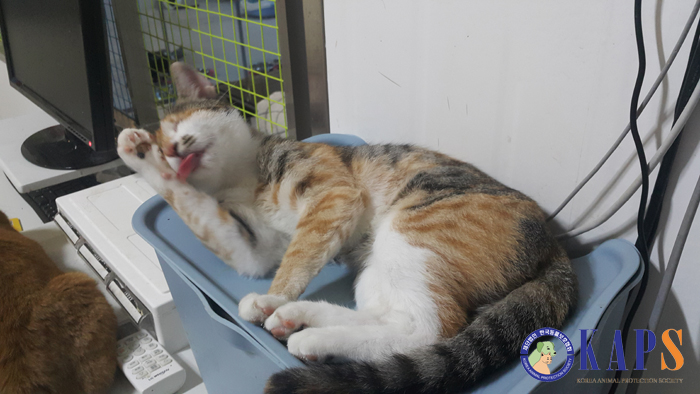
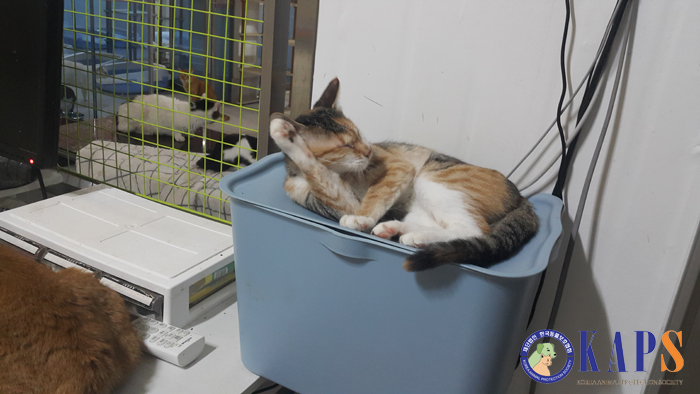
▲Henam, on the computer desk having a rest.
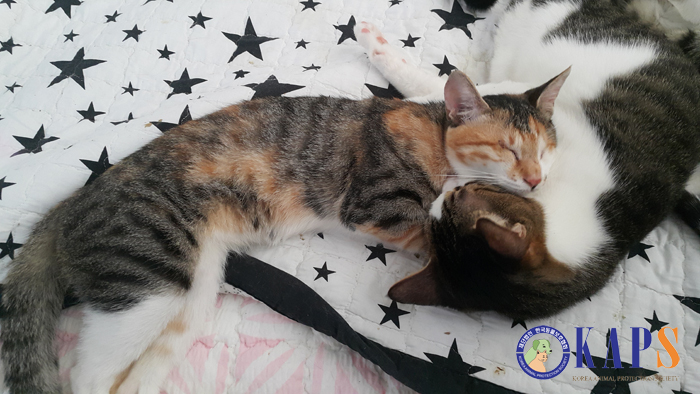
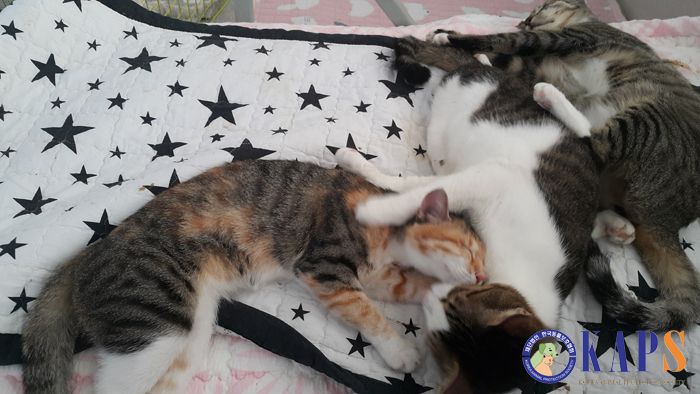
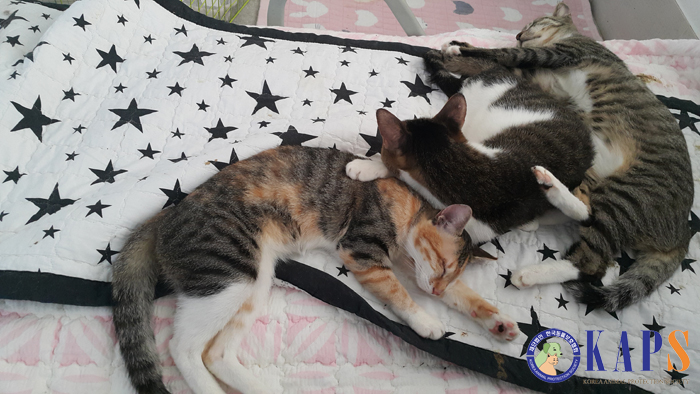
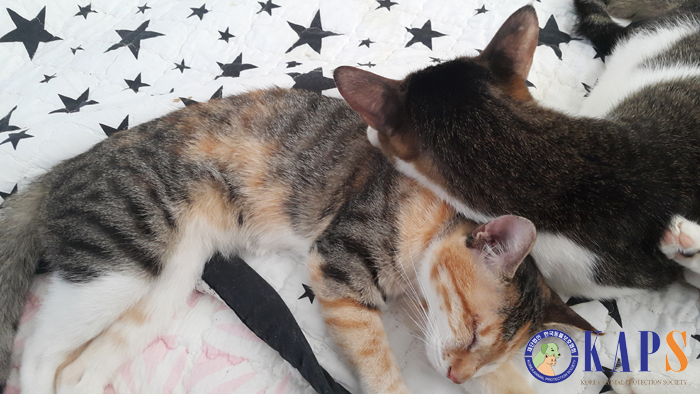
These days we see
Henam passing time happily in our shelter, living a better life than she could
have on the streets of an industrial area. It very much seems we made a
difficult but eventually very rewarding decision to rescue Henam.
Those who work in
animal welfare and in animal shelters, may feel sometimes one spends more time
with animals than with one’s family and that the burden of the work and the
sacrifices one makes are greater than the happiness the work provides.
However, it is
also fact that at KAPS we are glad to give feral and abandoned cats a
comfortable resting place and provide these cats a life with humans.
